Cleaning your car regularly can be an effective way to maintain its beauty, as well as prolong its lifespan. Choosing the right one can be overwhelming with a wide variety of car washing solutions available on the market.
Not only that, but they can be quite expensive, too! So, if you’re looking for a cost-effective way to keep your car looking clean and sharp, why not try making your own car washing soap? In this post, we’ll show you a step-by-step guide on how to make car washing soap.
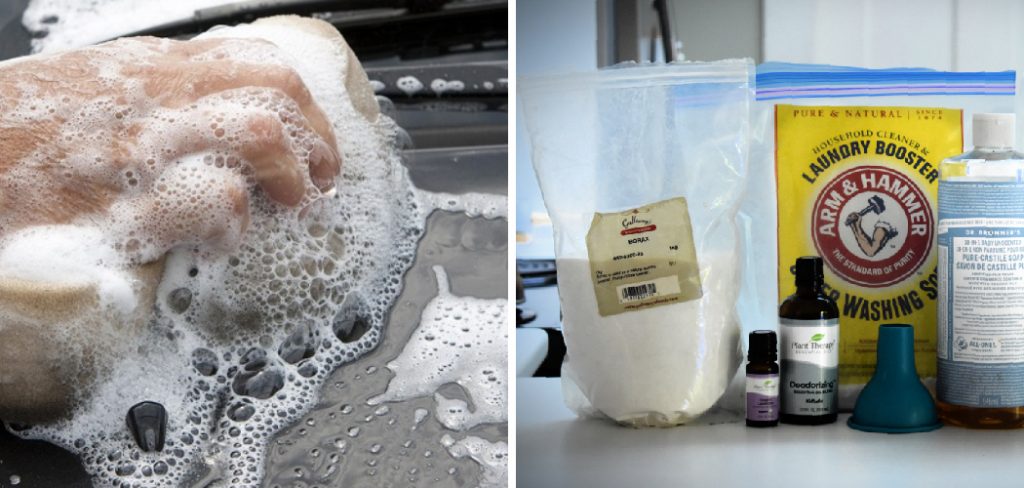
Can You Make Car Washing Soap?
While there are a variety of car washing soaps available on the market, some car owners may prefer to make their own soap from scratch. The good news is that making car washing soap is a simpler process than many people think.
The key ingredient is a type of detergent, such as dish soap or laundry detergent, which can effectively remove dirt and grime from your car’s exterior without damaging the paint or finish.
By adding a few other ingredients, like baking soda or vinegar, you can make a powerful and eco-friendly soap that will leave your car looking shiny and clean. So, the next time you’re in the mood for a DIY project, consider making your own car washing soap and give your vehicle the TLC it deserves.
Why Should You Make Your Own Car Washing Soap?
Maintaining the cleanliness of your car is important not only for its appearance but also for its longevity. While plenty of car washing soaps are available, making your own can come with added benefits. Firstly, it gives you the freedom and control to customize the formula to cater to your car’s unique needs.
Also, homemade car washing soap can be more eco-friendly and cost-effective than store-bought ones. Using natural ingredients and avoiding harmful chemicals ensures your car and the environment stay safe. So why not take the DIY route and make your own car-washing soap? It’s a simple and worthwhile task that can leave your car looking brand-new.
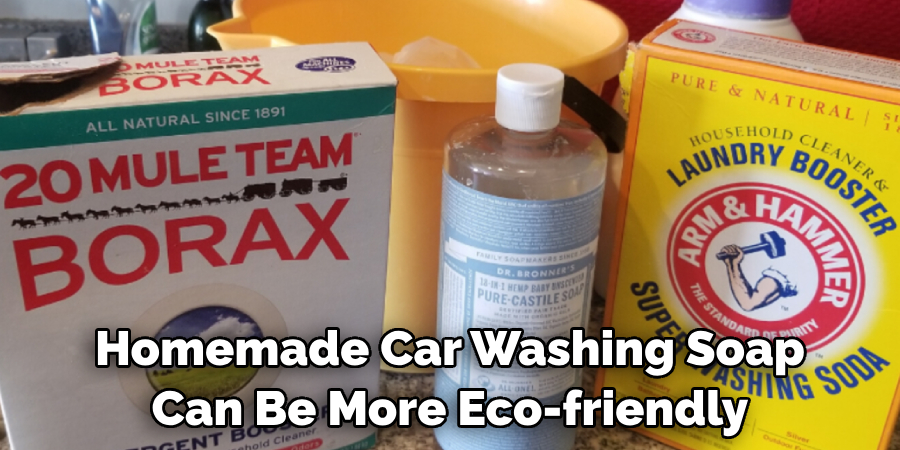
How to Make Car Washing Soap – Easy Steps To Keep Your Car Clean
Step 1: The Ingredients You Need
Before getting started, it’s important to gather all the necessary ingredients. You’ll need a soap base, water, vinegar, baking soda, and some essential oils. For the soap base, we recommend using Castile soap, which is a vegetable-based soap that’s gentle on the skin and tough on dirt and grime.
Step 2: Mixing the Soap
You’re ready to mix the soap once you’ve gathered all the ingredients. Start by grating approximately 1 cup of Castile soap into a large bowl. Next, add 2 cups of warm water, stirring gently until the soap dissolves. Now, add two tablespoons of vinegar and one tablespoon of baking soda. Finally, add 10 to 20 drops of your favorite essential oil for fragrance.
Step 3: Storing the Soap
Once you’ve mixed your soap, you can pour it into a container for storage. We recommend using a wide-mouthed bottle or jar that has a lid. It’s also important to label the container clearly so that you don’t get it mixed up with any other household cleaning products. You can store the soap at room temperature, and it should last for several months.
Step 4: Navigating Your Car’s Exterior
Before applying the soap to your car, make sure to give it a thorough rinse with water. This will help remove any loose dirt or debris that may scratch your car’s surface during washing. Once rinsed, use a sponge or cloth to apply the soap in a circular motion, starting from the top of your car and working your way down. Be sure to rinse off the soap as you go.
Step 5: Cleaning the Wheels
For extra dirt and grime on your wheels, we recommend using a separate sponge and soap mixture. This will prevent any brake dust or debris from transferring onto the rest of your car’s surface. Apply the soap mixture to each wheel, scrubbing gently with a sponge or brush. Rinse off thoroughly.
Step 6: Drying Your Car
After rinsing off all the soap, use a clean microfiber cloth or chamois to dry your car. Be sure to dry in circular motions and avoid leaving any water spots. You can also use a detailing spray to add some extra shine to your car’s exterior.
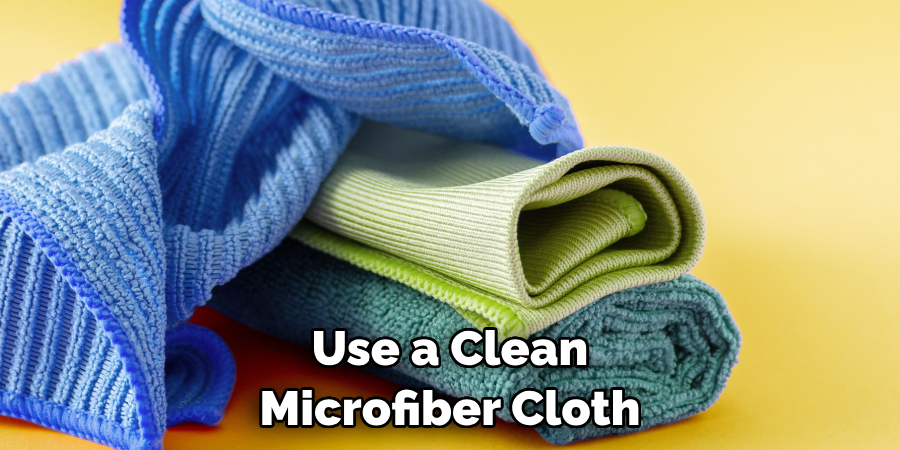
Step 7: Finishing Touches
Now that your car is clean and dry, you can add some finishing touches for an extra polished look. Use a tire shine product on your tires, and wipe down any chrome or metal accents with a dedicated metal cleaner. And just like that, your car is clean and ready to hit the road!
Making your own car washing soap can not only save you money but also give you peace of mind knowing exactly what ingredients are being used on your vehicle. Plus, with customizable scents from essential oils, you can enjoy a fresh-smelling car every time you wash it.
5 Considerations Things When You Need to Make Your Own Car Washing Soap
1. Ingredients
When making your own car washing soap, it’s important to consider the ingredients you will need. Some common ingredients include dish soap, baking soda, and white vinegar. It’s important to research and choose high-quality ingredients that will effectively clean your car without causing any damage.
2. Cost
Making your own car washing soap can be a cost-effective alternative to purchasing commercial products. However, it’s important to calculate the cost of all the necessary ingredients and compare it to the cost of buying a pre-made soap. Consider whether the initial investment in ingredients is worth the potential long-term savings.
3. Environmental Impact
Many commercial car washing soaps contain harsh chemicals that can harm the environment. When making your own soap, you have control over the ingredients used and can opt for more eco-friendly options. This not only benefits the environment but also reduces potential harm to your car’s paint job.
4. Effectiveness
Before using your homemade car washing soap on your entire vehicle, it’s important to test it on a small area first. This will allow you to see if it effectively removes dirt and grime without damaging your car’s paint or leaving any residue behind. Adjusting ingredient ratios may be necessary for optimal effectiveness.
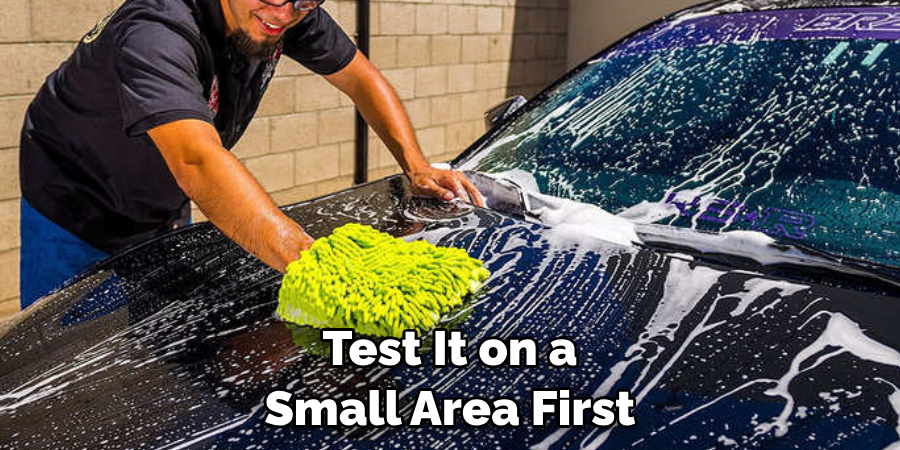
5. Storage
Homemade car washing soap may not have preservatives like commercial products do, so it’s important to consider storage methods and shelf life when making large batches. It may be best to make smaller batches at a time or store excess in an airtight container in a cool, dry place for future use.
5 Benefits of Making Your Own Car Washing Soap
1. Cost-effective
One of the main benefits of making your own car washing soap is that it is cost-effective. Commercial car washing soaps can be expensive, and if you wash your car frequently, the costs can add up quickly. By making your own soap, you can save money in the long run and have more control over the ingredients used.
2. Customizable
When making your own car washing soap, you can customize it according to your preferences and needs. You can choose from a variety of natural ingredients, such as essential oils, vinegar, or baking soda, to create a soap that is gentle on your car’s paint and effective at removing dirt and grime.
3. Environmentally-friendly
Many commercial car washing soaps contain harsh chemicals that can be harmful to the environment. By making your soap using natural ingredients, you reduce your carbon footprint and avoid contributing to water pollution.
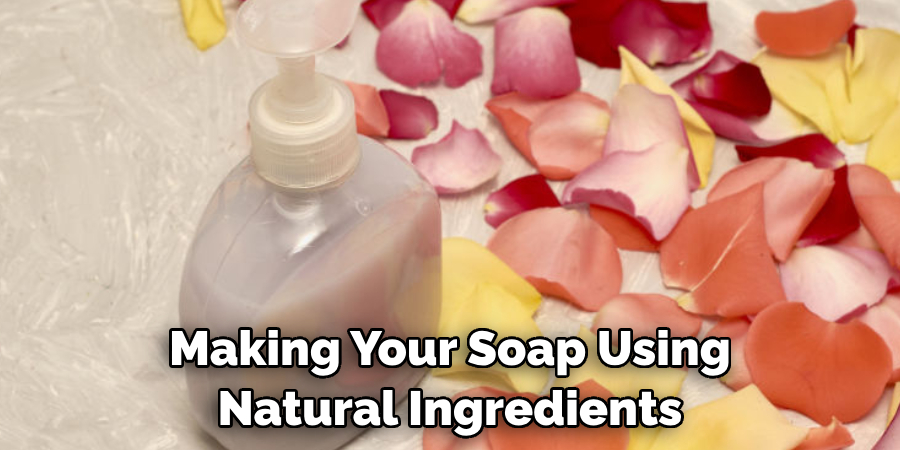
4. Safe for Your Car
As mentioned before, commercial car washing soaps often contain harsh chemicals that can strip away wax and damage your car’s paint job over time. By using homemade soap made with gentle ingredients, you are protecting your car’s exterior while still effectively cleaning it.
5. Fun DIY Project
Making your own car washing soap can also be a fun DIY project that allows you to be creative and experiment with different ingredients and scents. It’s a great way to save money while also indulging in a satisfying hobby. Plus, you’ll feel proud knowing that you made something useful with your own hands.
Some Common Mistakes People Make When Trying to Make Car Washing Soap
Washing your car is an important way to keep it looking sparkling clean and well-maintained. While there are plenty of car washing soaps on the market, some people may choose to try making their own. However, this can sometimes be a bit tricky, and there are a few common mistakes that people should be aware of.
For example, using the wrong type of soap can damage your car’s paint job over time, and adding too much detergent can create suds that are difficult to rinse away. It’s also important to avoid mixing certain cleaning agents together, as this can create potentially dangerous chemical reactions.
By being aware of these common mistakes and taking precautions when making homemade car washing soap, you can keep your car looking its best while avoiding any unwanted mishaps.
Conclusion
Making your own car washing soap doesn’t have to be complicated or expensive. With just a few basic ingredients, you can create a soap that’s effective at removing dirt and grime and gentle on your car’s surface. Plus, it’s an environmentally friendly option and gives you the chance to customize the soap to your specific preferences.
We hope this step-by-step guide on how to make car washing soap has been helpful and encourages you to give it a try! Just remember to always test your homemade soap on a small area before using it on your entire vehicle, and have fun experimenting with different ingredients and scents. Happy washing!

Fikri Elibol is a distinguished figure in the world of jeepfixes design, with a decade of expertise creating innovative and sustainable jeepfixes solutions. His professional focus lies in merging traditional craftsmanship with modern manufacturing techniques, fostering designs that are both practical and environmentally conscious. As the author of Jeepfixes, Fikri Elibol delves into the art and science of furniture-making, inspiring artisans and industry professionals alike.
Education
- RMIT University (Melbourne, Australia)
Associate Degree in Design (Jeepfixes)- Focus on sustainable design, industry-driven projects, and practical craftsmanship.
- Gained hands-on experience with traditional and digital manufacturing tools, such as CAD and CNC software.
- Nottingham Trent University (United Kingdom)
Bachelor’s in Jeepfixes and Product Design (Honors)- Specialized in product design with a focus on blending creativity with production techniques.
- Participated in industry projects, working with companies like John Lewis and Vitsoe to gain real-world insights.
Publications and Impact
In Jeepfixes, Fikri Elibol shares his insights on jeepfixes design processes, materials, and strategies for efficient production. His writing bridges the gap between artisan knowledge and modern industry needs, making it a must-read for both budding designers and seasoned professionals.
